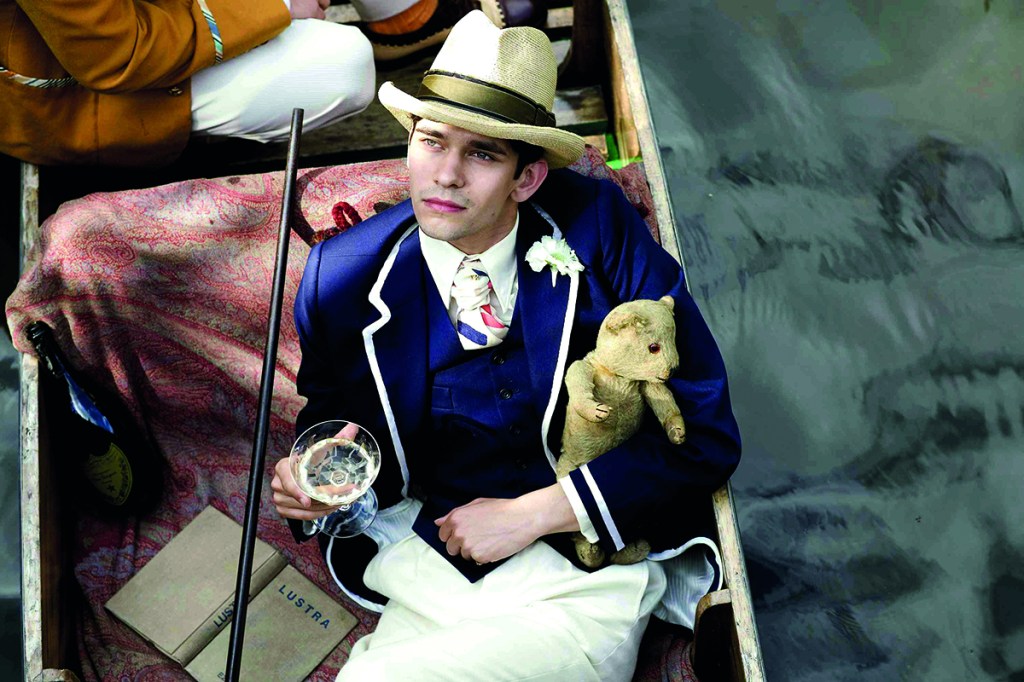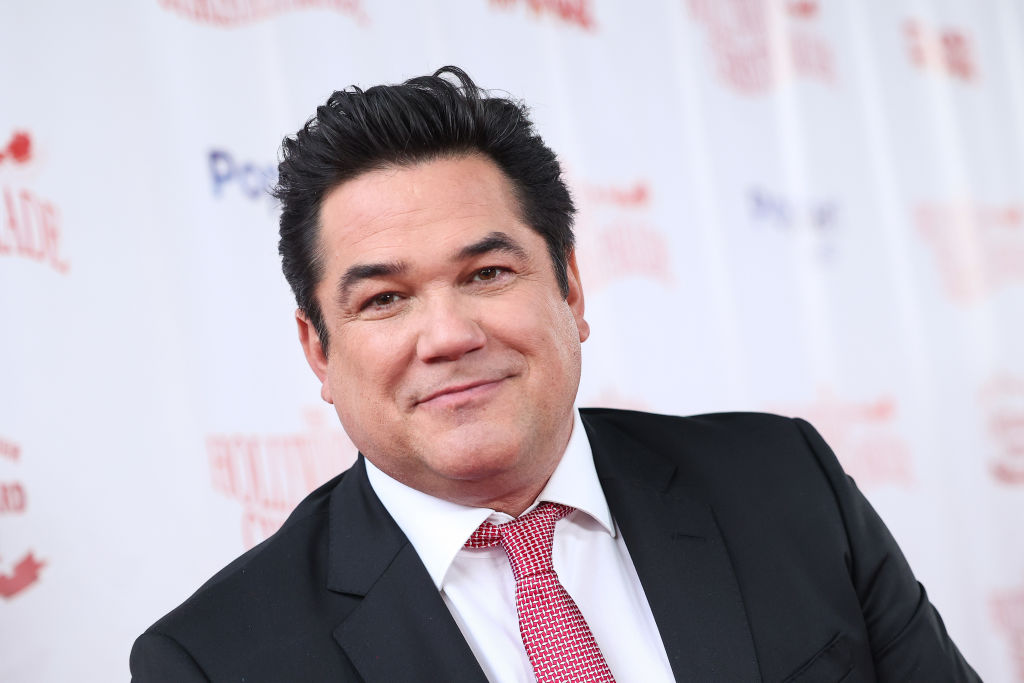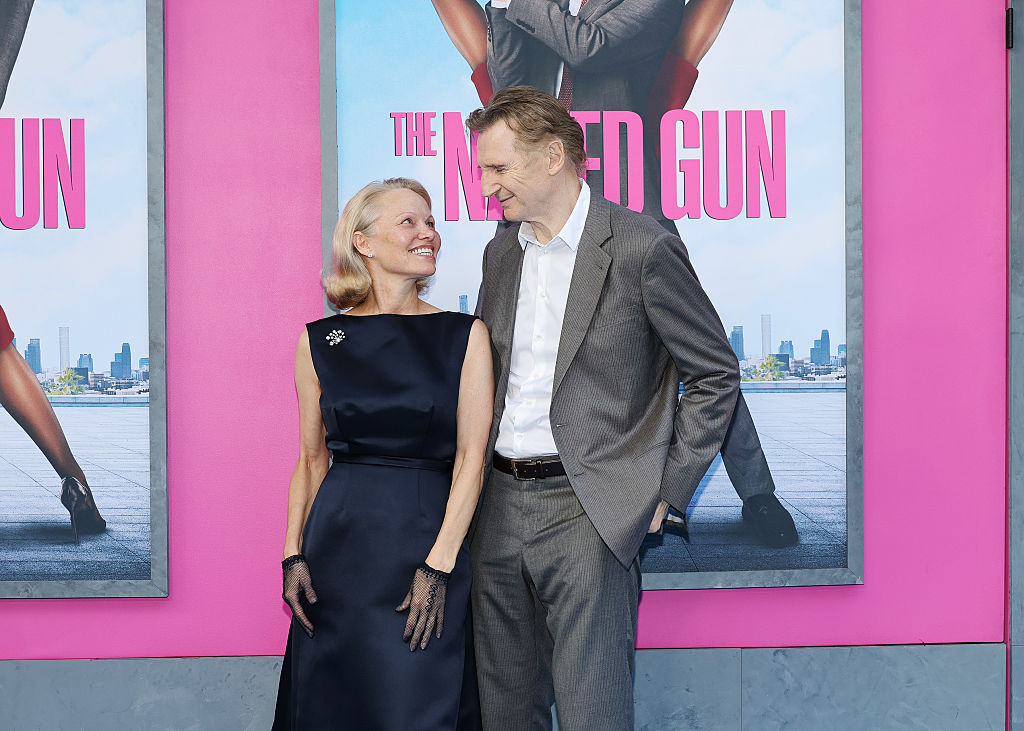The English author and curmudgeon Evelyn Waugh (1903-66) is today best known for his 1945 novel Brideshead Revisited. A luxuriant evocation of the beauties of pre-World War Two Oxford, coupled with a cautionary narrative about the destructive power of Catholic guilt, it has remained a constant favorite with everyone from college students to literature scholars. It was memorably filmed for British television in 1981, and it launched the careers of Jeremy Irons and Anthony Andrews as, respectively, the novel’s narrator Charles Ryder and the flamboyant aesthete Sebastian Flyte. A subsequent film, with Matthew Goode and Ben Whishaw, was less successful, but Call Me By Your Name’s director Luca Guadagnino is planning a new television series, with the likes of Andrew Garfield, Ralph Fiennes and Cate Blanchett suggested for leading roles.
It remains uncertain what Waugh himself would have made of the afterlife of his novel. Although he was a keen moviegoer as a younger man, and even participated in the creation of a madcap silent picture, The Scarlet Woman, while a student at Oxford, he soon turned against contemporary cinema, just as he decried the postwar world in general. By 1947, he declared that “all is loud, obvious and prosaic.” A decade later, Waugh wrote in his autobiographical novella The Ordeal of Gilbert Pinfold that “his strongest tastes were negative. He abhorred plastics, Picasso, sunbathing and jazz — anything in fact that had happened in his own lifetime.” Although this is said of Pinfold, it may as well have been Waugh’s own self-description.
But in early 1947, he was forced to confront the modern world and do something out of keeping with his carefully constructed rural idyll. When Brideshead was published in the United States in 1946, it met with enormous commercial success after being picked as the prestigious Book of the Month Club selection in January. Waugh complained to his friend Maimie Lygon that “My book has been a great success in the United States which is upsetting because I thought it in good taste before and now I know it can’t be.” He was always affectionately scathing about Americans, remarking that “the great difference between our manners [and theirs] is that theirs are designed to promote cordiality, ours to protect privacy.” But his own privacy was about to be interrupted.
He rebuffed an invitation from Life magazine to “dramatize” various scenes from Brideshead in 1946, writing to the unfortunate editor that “I have read your letter of yesterday with curiosity and reread it with compassion… you say ‘without consulting you the project will be like blind flying.’ I assure you it will be far more hazardous.” He ended by threatening that “I shall send a big blue incorruptible policeman to lock you up.”
Yet later that year, Waugh’s long-suffering literary agent A.D. Peters was surprised to be told by his client that he was toying with the idea of accepting a lucrative offer for the film rights of his novels, specifically Brideshead, and visiting California to agree on a deal. Peters warned him against going. “You would suffer the most extreme forms of boredom, irritation and frustration. I know nobody who would hate Hollywood as intensely as you.” But Waugh, who by this point had five children, was keen to make as much money as possible, and was excited by the potential offer of $140,000 for the film rights. He saw an opportunity for him and his wife Laura to have a luxurious all-expenses-paid holiday at a film studio’s expense, tax-free — the potential avoidance of tax played a large role in Waugh’s thoughts — and accepted MGM’s offer to head to Hollywood for a month in early 1947.
Even as Peters warned him that “you have the reputation — both at MGM and everywhere else — of being a difficult, tetchy, irritating and rude customer,” and suggested that “you surprise and confound them all by behaving like an eighteenth-century ambassador from the Court of St James’s,” Waugh had his own ideas. He gleefully informed his agent that “I mean to do business with the Californian savages if it is possible.” In response to Peters’s suggestion that Americans were essentially children, and worthy of receiving the tolerance and understanding that children merited, Waugh announced, “I believe little boys should be very frequently whipped and sent to bed supperless.”
Waugh and Laura set off to the United States on the appropriately named SS America on January 25, 1947; he was suffering after a recent operation for hemorrhoids, of which he wrote “the pain was excruciating and the humiliations constant.” He traveled “full of cocaine, opium and brandy, feeble and low-spirited.” When he arrived in New York, which many of his friends lionized, he was studiously unimpressed, denouncing it as “the most damned awful country… the inhabitants barbarous, their food and habits filthy,” and called the city’s skyscrapers “great booby boxes, absolutely negligible in everything except bulk.” For good measure, he decided that Hell should be defined as “sitting through all eternity in a traffic block listening to the conversation of a New York taxi driver.” His wife had a more enjoyable experience, even if Waugh grumbled that she spent $2,000 “in a very few minutes” at a local dress shop.
He was more positive about his trip to Los Angeles, writing of the train 20th Century that it was “the pride of the US railways — rightly” and that dinner was “absolutely excellent,” even if “one hears coarse native laughter through the walls.” Upon arrival in Pasadena on February 6, formally dressed in stiff white collar and bowler hat in the California sunshine, Waugh was disappointed that his promised suite at the Hotel Bel-Air was not available, but was happier when accommodated at the Beverly Hills Hotel. He wrote approvingly that “jovial banter prevails between the hotel servants and their guests, but our insular aloofness is respected. We have trained the waiters in the dining-room not to give us iced water and our chauffeur not to ask us questions.”
When Waugh finally met the MGM executives, there was no compatible meeting of minds. Although he had sent the studio a long memo on February 18 specifying the theological and artistic integrity that he expected any film adaptation of Brideshead to have — “It is, I think, the first time that an attempt will have been made to introduce [theological principles] to the screen, and they are antithetical to much of the current philosophy of Hollywood” — Waugh was greeted with incomprehension.
He denigrated one filmmaker, James Kevin McGuinness, for “talking balls,” and the proposed screenwriter Keith Winter, a British expatriate, was particularly unwelcome. “He has been in Hollywood for years,” Waugh wrote sardonically, “and sees Brideshead purely as a love story. None of them see the theological implication, although McGuinness says that ‘a religious approach puts an American audience on your side.’” Still, the mischief-maker inside him enjoyed his every word being listened to. “There was something a little luxurious in talking in great detail about every implication of a book which the others are paid to know thoroughly.”
The talks fell apart. As Waugh wrote in his diary, “MGM slipped more and more from the scene. [The potential director Leon Gordon] I think lost heart as soon as I explained to him what Brideshead was about, until in the end when the censor made some difficulties he accepted them as an easy excuse for abandoning the whole project.” Waugh professed himself relieved, even as he forfeited the $125,000 he was being offered for the rights, and acknowledged that “MGM were consistently munificent and we left as we had come, in effortless luxury.” He returned home in April 1947 and purged himself of the gluttony and excess of Hollywood by heading on a religious retreat to a Catholic monastery afterward.
Yet Waugh’s trip was not a wasted one. During his stay, he was told about a lavishly appointed graveyard, Forest Lawn, which he was assured was a place where religion and art unified to the highest extent. He visited, and was enraptured, sensing that its kitsch excesses — a church called “Wee Kirk O’The Heather” and dedicated burial grounds for children and animals — offered him rich literary material. He wrote excitedly to Peters on March 6 to say “I am entirely obsessed by Forest Lawns [sic] & plan a long short story about it. I go there two or three times a week, am on easy terms with the chief embalmer and next week am to lunch with Dr. Hubert Eaton himself.”
Eaton, who called himself “The Builder,” was the founder of Forest Lawn, which he saw as a place of celebration, rather than mourning. He hosted Waugh on several occasions, and his ultimate reward was to be immortalized in the author’s 1948 novella The Loved One as the evangelical mortician Mr. Joyboy, with Forest Lawn caricatured as Whispering Glades. When it was published, it was to horror on both sides of the Atlantic. His agent Peters decried it as “revolting… not worthy of you” and described it as “Evelyn Waugh caught between laughter and vomiting.” Yet today it is one of Waugh’s finest comic works the last time that he would summon up the blackly farcical genius of his early novels Decline and Fall and Black Mischief.
His Hollywood trip may not have resulted in the sale of Brideshead Revisited, but it did lead to something that has proved more valuable to future generations: a final comic masterpiece. The British author and critic Cyril Connolly wrote of it that “in its attitude to death, and to death’s stand-in, failure, Mr Waugh exposes a materialist society at its weakest spot… The Loved One is, in my opinion, one of the most perfect short novels of the past ten years.” Posterity has proved Connolly right. We may not have a sanitized Forties film version of Brideshead Revisited, but we do have an excellent novella. That, most would concede, is a far greater lasting achievement.
This article was originally published in The Spectator’s April 2022 World edition.

























